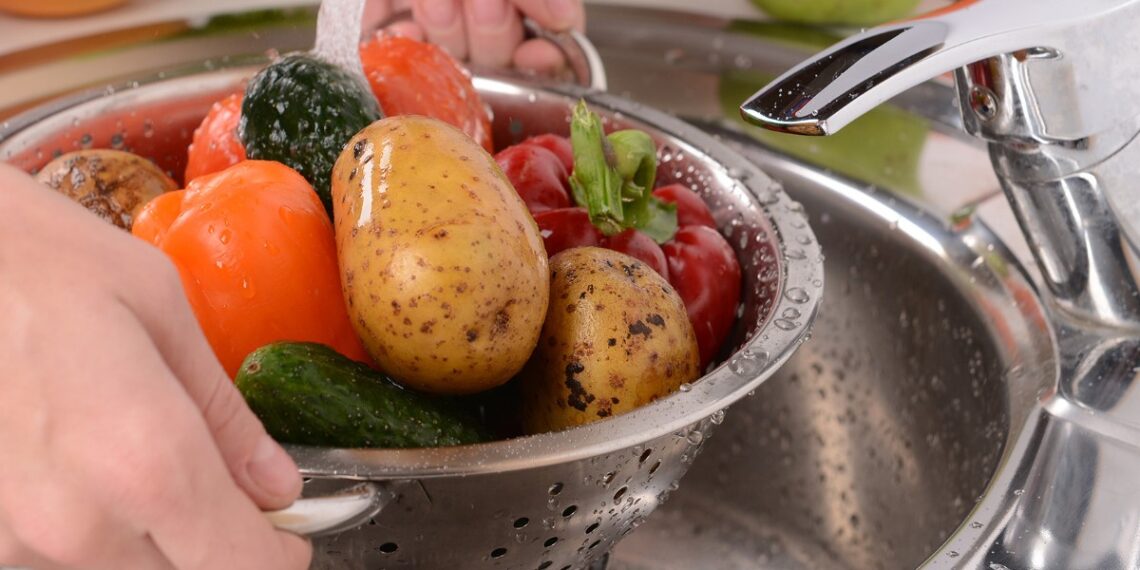
With the onset of the summer season, the diet includes a lot of fresh berries, fruits, vegetables and greens. They are very useful for humans – they contain a large number of vitamins, antioxidants, fiber and other useful substances. However, during the process of growing and delivery, plant products are contaminated with particles of soil, dust, sand, microbes and helminth eggs. In addition, traces of fertilizers, including organic ones (manure, compost), may remain on them. Small insects can hide in leafy greens.
If not processed properly, summer gifts can cause bacterial and viral infections, such as salmonellosis, yersiniosis, pseudo tuberculosis, listeriosis, rotavirus infection, hepatitis A and others. Infection with a number of helminthiases (ascariasis, trichuriasis, toxocariasis, strongyloidiasis) is also possible when consuming fruit and vegetable crops. Thorough washing of fruits and greens is a reliable way to remove dirt and microorganisms from their surface and a mandatory condition for their consumption.
Let us remind you of the basic rules for processing plant products:
- Use only clean running water or bottled water if you are outdoors;
- It is better to wash food immediately before consumption, otherwise a favorable environment for the growth of bacteria will be created on the surface, and the food will quickly become unsuitable for use;
- Your hands and the utensils in which you wash and serve vegetables and fruits should also be clean;
- Remove all damaged and rotten areas on food products – bacteria grow well in them. Do not eat fruits with signs of spoilage and rot;
- Wash even fruits with inedible peels (bananas, oranges), since when removing the peel you can transfer bacteria to the edible part with your hands.
How to wash different types of food?
Soak root vegetables (carrots, beets, potatoes, radishes) in water for 5-15 minutes to soften the dirt, then thoroughly brush under running water. Scald radishes with boiling water. When peeling, cut off damaged parts of the fruit.
Greens (lettuce, dill, parsley, onion) – remove roots, spoiled leaves, then soak in a bowl of cold water for 5-15 minutes (you can add salt), then rinse under running water and dry on a clean towel.
Remove the top layer of leaves from white cabbage before rinsing with water. Cut into 4 pieces, place in a colander and pour boiling water over them. Separate cauliflower and broccoli into florets, soak in cool salted water to get rid of insects. Rinse with running water. Melons (watermelons, melons, pumpkins) – wash under hot running water using a brush. Do not buy watermelons and melons cut up, since bacteria from the surface of untreated knives, boards, and the hands of the seller actively multiply in the pulp of the product.
Berries – rinse in a colander under a gentle stream of water, then carefully lay out on a clean towel to dry slightly. Some berries (raspberries, blackberries, strawberries) can be soaked for 2-3 minutes in salted water to remove small insects.
As the popular wisdom says: “Wise is he who knows what is necessary, and not much.”








